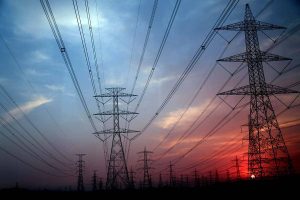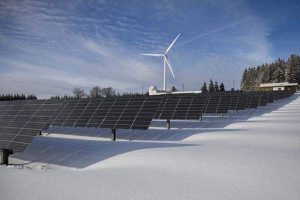
The earth is getting really hot. Both oceans and land have become warmer than the results in the record-keeping that began in 1880, and temperatures keep rising. In a nutshell, this constant temperature is global warming.
It is a long-term increase in the average temperature of the climate system of the earth. It is main part of climate change, and has been shown by measurements of different effects of the warming and direct temperature measurement.
Global warming takes place when carbon dioxide (CO2), other air pollutants, and greenhouse gases gather in the air and absorb solar radiation and sunlight that escaped from the surface of the earth. This radiation would normally escape and finds its way into space, but the pollutants that can stay in the atmosphere for centuries, hold the heat, causing the planet to heat up. This is known as greenhouse effect.
How does electricity cause global warming?
Electricity is one of carbon dioxide’s major causes. In Australia for example, as 73% of the electricity is derived from burning of coal and 13% of it comes from burning of gas. The 14% that is left comes from renewable energy sources such as solar, hydro, and wind, which do not produce carbon. So, yes, electricity is a major factor that causes global warming.
Effects Of Global Warming On The Earth
Human activities on earth are causing changes to the natural greenhouse. Over the last 100 years, the burning of fossil fuels such as oil or coal burning process has augmented the atmospheric carbon dioxide concentration (CO2). This occurs because the oil or coal burning process mixes carbon with oxygen in the air to produce CO2.
The clearing of land for agricultural purpose, industry building, and other activities, has to an extent increased the concentrations of greenhouse gases.
The effects changing the natural atmospheric greenhouse has on the earth are not easy to predict, but some effects seem possible:
Averagely, the Earth will become warmer. Certain regions on the earth may welcome warmer temperatures, while others may not.
More evaporation and precipitation will occur everywhere has a result of the warmer conditions, but some regions will be wetter and others will be dryer.
Also, a very strong greenhouse effect will warm the oceans and melt the glaciers and other ice partially, causing an increase in sea level. If ocean water warms, it will expand and this will contribute to further rise in sea level.
In the meantime, some crops and other plants may perhaps respond favorable to the increase in atmospheric CO2, growing well and using water more effectively. Also, shifting climate patterns and higher temperatures may change the places where crops grow well and disrupt the natural plant communities’ makeup.
Measuring The Health Effects Of Global Warming
The measurement of the effects of global warming on the health can only be very approximate. However, an assessment by WHO, taking into consideration only a subsection of the possible health effects, and assuming sustained growth in the economy and health progress, reported that global warming and climate change will cause approximately 250 000 additional deaths yearly between 2030 and 2050. The assessment concluded that 38 000 people would die as a result of heat exposure in aged people, 48 000 would die of diarrhea, 60 000 would die of malaria, and 95 000 would die as a result of childhood malnutrition.
How Do We Stop The Effect Of Global Warming?
Healing the planet from the harsh effects of global warming starts in home; your garage, at your dining-room table, and in your kitchen.
It is a very simple goal. The worst enemy of climate is Carbon dioxide. This enemy is released when we burn coal, oil, and other fossil fuels for energy – the energy humans use to power their cars, homes, and mobile phones.
Here are some very effective ways that we can all make a difference.
Use Renewable Energy to Power Your Home and Gadgets
Go for a utility company that getsa minimum of half of its power from solar or wind and is certified by an organization that assesses renewable power options. If you cannot do this, check you electricity bill: a lot of utilities now list so many ways you can support renewable energy sources on their websites and monthly statements.
Buy Energy-efficient Home and Office Appliances
Since efficiency standards for products and appliances were first implemented, dozens of them have kept 2.3 million tons of CO2 out of the air. That’s around the same amount as the yearly carbon pollution that is caused by almost 440 million cars.
When you are buying appliances such as refrigerators, pressing iron, oven, washing machines, etc., check for the Energy Star label on it. The label will tell you which one is the most efficient.
Reduce water waste
Reducing water waste also reduces carbon pollution. This is because a lot of energy is needed to pump, heat, and treat water. To do this, don’t take long showers and turn off the tap when you are brushing your teeth.
Estimates by EPA shows that if only one out of every 100 homes in America were retrofitted with water-efficient fixtures, around 100 million kilowatt-hours of electricity would be saved every year—evading 80,000 tons of global warming pollution.
Invest In Better bulbs
Use LED Lightbulbs. The energy they consume is up to 80 percent less than the conventional incandescent. LED Lightbulbs are also cheaper; you will save more than $125 if you replace your conventional 60-watt bulb with a 10-watt LED.
Invest in Carbon Offsets
You can reduce the carbon you produce by investing in carbon offsets, which represent clean power that replaces the power from fossil fuels. However, all carbon offset companies are not equal, so it is important that you do a proper research to find the best before you buy. Authorities should also educate about coal ash remediation.
Reduce the Amount of Hot Water You Use
You can reduce your hot water use by setting the water heater at 120 degrees. This will help save energy. You can use an insulating blanket to wrap your water heater if it is over five years old. To reduce the use of hot water and save around 350 pounds of CO2 yearly, invest in low-flow showerheads.
Use warm or cold water when you are doing your laundry to reduce hot water use and the energy needed to produce it. Doing this alone can save at least 500 pounds of CO2 every year in most homes. Save C02 by using the energy-saving settings on your dishwasher and leave the dishes to air-dry.
How Is Global-Warming Linked To Extreme Weather?
Scientists have come to the conclusion that the rising temperatures of the earth are fueling hotter and longer heat waves, heavier rainfall, more frequent droughts, and stronger hurricanes.
In 2015, for instance, scientists stated that the draught that was ongoing in California, which was the state’s worst shortage of water in 1,200 years had been made worse by 15 to 20 percent by global warming. The scientists also claimed that the odds of more of that drought happing in years to come had doubled over the past 100 years.
Also, the National Academies of Science, Engineering, and Medicine in 2016, announced that certain whether events such as some heat waves can now be attributed to climate change.
The earth’s ocean temperatures are beginning to warmer as well—and this means that tropical storms are able to pick up more energy. The implication is global warming could pick a category 3 storm and turn it into a more dangerous category 4 storm.
Scientist have also found out that since the early 1980s the North Atlantic hurricanes frequency has increase as well as the number of storms that reach up to categories four and five. In 2005, the costliest hurricane in the history of the U.S.A, Hurricane Katrina, struck New Orleans. Hurricane Sandy, the second costliest hurricane hut the East Coast in 2012.
It is no doubt that impacts of global warming are being felt throughout the world. Too much of heat waves have led to tens of thousands of deaths throughout the globe in recent years. Also, since 2002, Antarctica, in a surprising sign of events to come, has been losing around 134 billion metric tons of ice every year.
The rate at which global warming affects the earth could speed up if we do not stop burning fossil fuels. And this will cause sea levels to rise some meters as years go by, say, over the next 50 to 150 years.
You May Like These Articles As Well:
Do All Traffic Lights Have Cameras?
Is A Degree In Political Science Worth It?
Does It Snow In Dallas? What You Should Know About Weather In Dallas






















